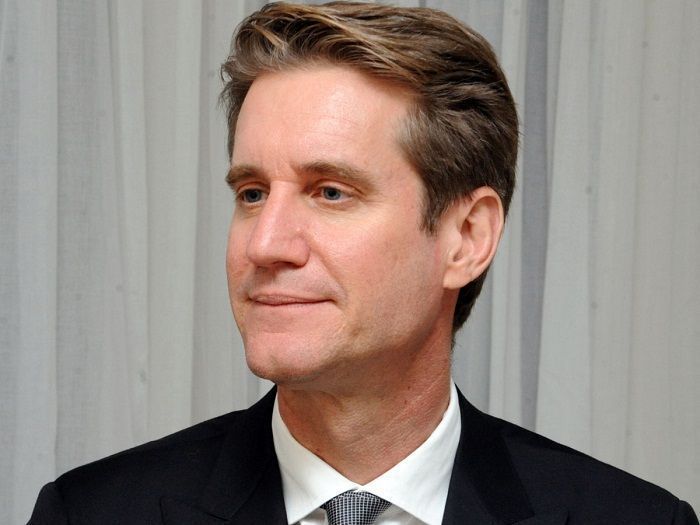
Following the 9th Southern Gas Corridor Advisory Council Ministerial Meeting and 1st Green Energy Advisory Council Ministerial Meeting in Baku on February 3, former US Ambassador to Azerbaijan Matthew Bryza in an interview with Azernews’ Sabina Mammadli spoke about Azerbaijan’s oil and gas market, mulled over renewable energy potential and import to Europe.
Q. What do you think are the future prospects of green energy in Azerbaijan? Does Azerbaijan have sufficient opportunities or capacities to play a role to this end?
A. Azerbaijan has the capability to be a major producer of renewable energy, which, I know, is a part of the overall energy and foreign policy strategy of President Aliyev. He has talked about it a lot over the course of the past year or two. During the Middle Corridor conference at ADA University a couple of months ago he gave a very powerful set of remarks that defined what Azerbaijan’s ambitions are for renewable energy. He also underscored how there are few places on Earth, maybe only one other one, that have the intensity and consistency of winds and sunlight as Azerbaijan.
So there is going to be an enormous amount of offshore wind generation in the Caspian Sea and also in the liberated territories. So much so that, I think, in the course of the next 4-5 years Azerbaijan could replace electricity generation via natural gas with renewables to the extent that it could maybe export another 3-5 billion cu.m of natural gas to the European Union. To put that into perspective, Azerbaijan is currently exporting about 10 billion cu. m. to Europe, so it could boost 30-50 percent of its exports of natural gas to Europe just in the course of the next few years by using renewable energy generated at home.
The ultimate capability of Azerbaijan in terms of renewable energy will depend on investments over the course of the next few years. But as I said, President Aliyev has outlined an ambitious plan for renewable energy generation working in partnership with great companies like Masdar from the United Arab Emirates, and ACWA Power from Saudi Arabia. I think it is a very wise strategy to be pursuing renewable energy so heavily because it has great theoretical capacity given the strong and consistent wind and sunlight in Azerbaijan.
Q. More and more countries are eager to purchase gas from Azerbaijan and the latter speaks about the sufficient potential to be conducive to meeting the growing demand for gas. In your opinion, what steps are needed to meet those expectations and minimize dependence on Russia?
A. First of all, it’s been a strategy of the United States for three decades to persuade our European allies to diversify their reliance on Russian natural gas and therefore to develop multiple sources of supply, especially from Azerbaijan and the Caspian region. You know, we’ve always hoped that Turkmenistan and Kazakhstan could also be involved but, the fact is, that Azerbaijan has been the real leader in helping to diversify its natural gas supplies via the Southern Gas Corridor.
By the way, it’s the US that was first calling it the Southern Corridor and pushing for it and we had to convince our EU allies to also embrace their own interest in the Southern Corridor. So, it is Azerbaijani gas that is essentially what fills the corridor. As everyone knows, in July of last year, the EU and Azerbaijan signed a strategic energy partnership agreement covering renewable energy and many other topics. Among the commitments is also to double the capacity of the Southern Gas Corridor to Europe, i.e. double the capacity of the current volume of 10 bcm to 20 bcm.
To do that a couple of things need to happen. One, Azerbaijan needs to continue investing in renewable energy, as I’ve already said. So that rather than burning natural gas to generate electricity, it could export some of that gas by relying on renewable one. But the second thing that needs to happen is large volumes of investments need to be brought to Azerbaijan to develop the next round of natural gas fields on the Caspian sea offshore Azerbaijan. And those negotiations are going on now. If Azerbaijan meets its goal of renewable energy and on attracting additional international investment, then I think we will see Azerbaijan being able to double its exports to Europe from 10 to 20 bcm by 2027, which is the target with the EU. And I have no doubt that Azerbaijan is totally committed to doing that. And by collaborating with its friends in the past, Azerbaijan has only succeeded so I expect it to succeed this time too.
Q. Azerbaijan has always been a trusty partner in the international arena, whether through the Contract of the Century, or Silk Way. What do you think are the chances of Azerbaijan to live up to the expectations of certain parts of European nations in meeting their need for natural gas?
A. Since the mid-1990s when then-president Heydar Aliyev led the way to the Contract of the Century, which opened up Azerbaijan to international investments and its oil and gas sector, the country has indeed been a reliable partner for international oil and gas companies seeking to invest, to produce oil and gas in Azerbaijan and then to export it. I was in the middle of the negotiations for several years between Azerbaijan, Georgia, and Turkiye and then their state companies, SOCAR, TPAO with international companies like BP, to help them all reach the international agreements they needed to allow for investment in what became the Baku-Tbilisi-Jeyhan oil pipeline and the South Caucasus Gas Pipeline, which, in turn, has become the Southern Gas Corridor, that the EU is relying on increasingly to diversify its supplies of natural gas away from Russia.
I expect the next round of investment in Azerbaijan’s upstream resources to succeed along with investments in Azerbaijan’s renewable energy, which will free up more gas for export. Azerbaijan has proven to be reliable, especially, because of reaching production-sharing agreements with international oil and gas companies, which protected those investments against anybody who wanted to manipulate the situation or take advantage of international companies and harm their investments. So, Azerbaijan has done a great job in protecting international investments. And I think, that’s going to be the key to seeing new successful rounds of upstream investment in natural gas production in the country.
 Oval Useful news from Azerbaijan and Caucasus
Oval Useful news from Azerbaijan and Caucasus


